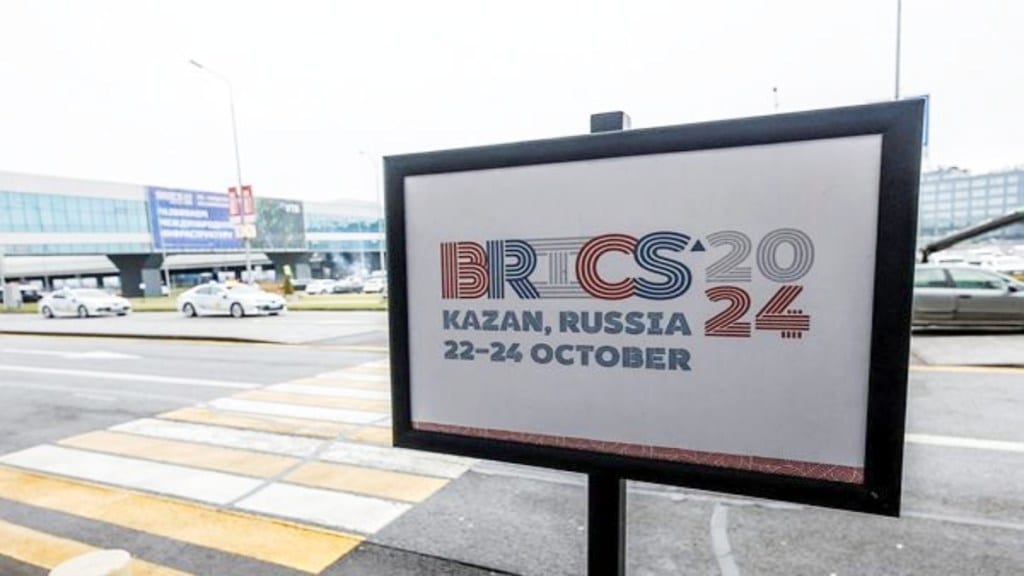This week, Russian President Vladimir Putin will meet with key global leaders, including China’s Xi Jinping, India’s Narendra Modi, Turkey’s Recep Tayyip Erdogan, and Iran’s Masoud Pezeshkian, in the Russian city of Kazan for the BRICS summit. The summit defies predictions that Putin’s war in Ukraine and the international arrest warrant against him would isolate Russia. Instead, it showcases Russia’s growing alliance with nations seeking to counterbalance the US-led Western world order.
BRICS, which originally included Brazil, Russia, India, China, and South Africa, is expanding rapidly, with new members such as Iran, Egypt, and Saudi Arabia joining this year. Turkey, Azerbaijan, and Malaysia have also applied for membership. Russian officials see the summit as a diplomatic success, with 36 countries participating, and over 20 heads of state attending.
Russia’s business with global allies
For Putin, the summit offers a powerful image of standing strong with global allies amid rising tensions with the West. The Kremlin hopes to secure deals with these nations to strengthen its economy and war efforts, particularly through expanded trade and bypassing Western sanctions. India, for example, remains a key market for Russian commodities, while China is essential for sourcing military-related goods.
Russia also seeks to expand a payment system as an alternative to SWIFT, allowing trade with partners without the risk of U.S. sanctions. The inclusion of powerful economies like China, India, and Saudi Arabia could deter Western attempts to disrupt this platform.
For Iran, the summit offers a chance to solidify its ties with Russia, especially in defence. Tehran provided Moscow with drones after the invasion of Ukraine, helping sustain Russian airstrikes. In return, Iran seeks Russian weapons like air defence systems to bolster its military strength.
China’s participation underscores its ambition to challenge US dominance through BRICS. Alongside the Shanghai Cooperation Organization, China sees BRICS as a forum to build economic and military ties and even explore alternatives to dollar-based international trade.
Turkey’s interest in joining BRICS highlights its growing frustration with the West, particularly over stalled EU membership and disputes with the US. President Erdogan hopes to strengthen his geopolitical influence by maintaining relationships with both BRICS and Western powers, extracting benefits from both sides.
India, balancing relations with Russia and the US., views BRICS as an economic forum, though Moscow and Beijing see it as a geopolitical platform. Modi’s meeting with Putin will be closely watched, as Western allies urge India to push for peace in Ukraine.
BRICS, not a threat: US
Amid the ongoing BRICS Summit from October 22 to 24, John Kirby, the White House National Security Communications Advisor, clarified that the United States does not perceive the BRICS organisation as a “threat.” During a press conference, Kirby addressed questions about the summit, emphasising that it should not be viewed as a significant platform for Russian President Vladimir Putin or Russia itself.
Kirby stated, “I don’t think that you should look at this BRICS conference as some sort of coming-out party for Mr. Putin and for Russia. First of all, the BRICS as an organization isn’t new.” He pointed out that each member country has the sovereignty to decide with whom they associate and how. Kirby further explained, “We don’t view the BRICS arrangement as some sort of threat. These countries can decide for themselves who they want to associate with and especially how they want to be economically linked with one another.”
The BRICS Summit, themed “Strengthening Multilateralism for Just Global Development and Security,” is set to provide a crucial platform for leaders to discuss pressing global issues. The formal grouping began after a meeting between Russia, India, and China in St. Petersburg in 2006 and was officially established during the first BRIC Foreign Ministers meeting that same year. The inaugural BRIC Summit took place in Yekaterinburg, Russia, in 2009.
(With agency inputs)


